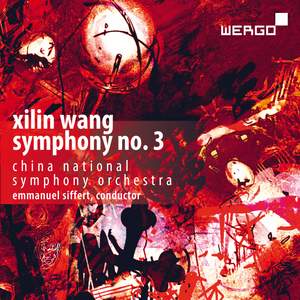In commemoration of the 1989 Tiananmen Square protests and massacre and dedicated to the people with lofty ideals who pursue democracy and freedom all over the world.
(Xilin Wang)
Xilin Wang is one of China's most important composers. He is characterized by his expressive, effective compositional style (and his subversive tendencies). He studied composition and conducting at the Shanghai Conservatory of Music and was awarded the highest Chinese state prize in 1963. However, following his criticism of Mao's cultural policy, Wang was sentenced to 14 years of exile and forced labor, during which he suffered persecution and torture.
After the end of the Cultural Revolution in 1978, Wang returned to Beijing and became acquainted with the music of the European avant-garde. Since then, he has incorporated sequencing, minimalism, tone clusters and folkloristic elements into his works, such as the important "Symphony No. 3".
The four-movement work is considered a "serious meditation" on the ten-year-long inhumane "Great Proletarian Cultural Revolution" and was written under the impression of the massacre at Tiananmen Square. Wang dedicates it "to the people with lofty ideals who pursue democracy and freedom all over the world".
“I do not wish to write for myself alone, but to depict this long history and the many aspects of humanity it encompasses; I compose for all those who have died." Symphony (literally: “sounding together”) – Wang gives new life and unexpected force to this supposedly outdated genre.
Xiling Wang's "Symphony No. 3" was recorded in a first-class performance by the China National Symphony Orchestra under the baton of Swiss conductor Emmanuel Siffert and can be regarded as exemplary in terms of interpretation.





